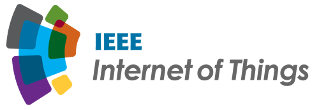IEEE Talks IoT: Doug Houseman

Doug Houseman’s 30-year career in the power industry includes a lead role in the IEEE Power and Energy Society’s Intelligent Grid Coordinating Committee, helping develop the National Institute of Science and Technology’s smart grid framework model. Doug is vice president for technology and innovations at EnerNex LLC, and as an IoT subject matter expert discusses opportunities around automatic monitoring and control in the home and how it can benefit the electrical grid.
Question: Homes are full of devices that never really completely shut off – televisions, computers and other media devices, for example. How can the Internet of Things help manage their energy consumption?
Doug Houseman: Between nine and 14 per cent of the power that comes into your home goes for standby, and you’re not getting any value out of it. And, the more technical you are, the younger you are, the higher that percentage gets because you have more computers, more large screen TVs and more cell phones. As you move further and further into the digital, always-connected world, you’re using more and more of your energy just to be ready to do something. For example, IoT can allow a simple text to be sent to the house from one of the kids leaving school, so when they arrive home their media stack and computers are all warmed and ready to go, but otherwise they are completely turned off during the night or when no one is home. This reduces electricity bills.
Question: So what happens as homes get even more technologically advanced with smarter appliances?
Houseman: There are companies now that offer IP-enabled breakers for both household and commercial electrical panels, so instead of having to turn off every little device, you can actually sit down and program the panel. You can also log into the panel from anywhere in the world on the Internet and be able to reset any of the devices. Not only that, you can look breaker by breaker at what’s going on in a panel and understand where you might have a short circuit or another problem. Not only can you save electricity with IoT, and customize your electricity use to suite your lifestyle, but you can detect potential safety issues that might not manifest themselves for several more years.
Question: Are there applications that have been around for a while that are a precursor to the IoT applications we are starting to see in smart homes, smart buildings and across electrical grids?
Houseman: We’ve been doing things in the industry with building control system and demand response programs since the mid-1980s that would probably be considered IoT. If you look at the On-Call program down in Florida that began in 1984, it now has almost five million devices that it’s controlling and it’s probably one of the most valuable programs for energy savings in the United States. The actual Internet wasn’t involved but we have been doing large-scale control over a network going back three decades, and we now have some understanding of how to control millions of devices.
Question: Who is driving IoT in terms of its application towards more efficient electricity? Is it consumers? People who think consumers want a smarter home? Or is it the utilities themselves?
Houseman: It’s a mix. There are leading-edge customers who are interested. They’re not sure that they’re going to save money at this point because the technology is still not cheap, but they’re interested. We have home builders building high-end luxury homes and believe they need this kind of automation because of the “gee whiz” factor. And then there’s the utilities that realize they can have some control over what customers are doing around demand, and in the long run they may be able to match high levels of photovoltaic in the grid with demand in a much more reasonable fashion. In addition, you have companies such as Google and Apple who are building interesting apps on their mobile devices to allow people to use this stuff in an intuitive fashion, while retailers see a category they can own. There’s also companies such as Comcast and ADT that are looking to expand into new markets and create new revenue channels.
Question: You mentioned ADT, a security company. What are the concerns around security given that we putting all sorts of automated, connected devices in our homes?
Houseman: There’s concerns about security no matter what you do. And if I don’t do something about managing my electricity use and we go to a highly renewable future then one of my security concerns is when I want electricity will it be there? Or will the grid become much more unreliable? If somebody can turn on your television set when you’re not home, how big a deal is that? I don’t have an answer but for a homeowner or a business what am I going to do? Turn something on, turn something off? We’re going to have to take reasonable precautions and think about what level of security we build into these devices.


